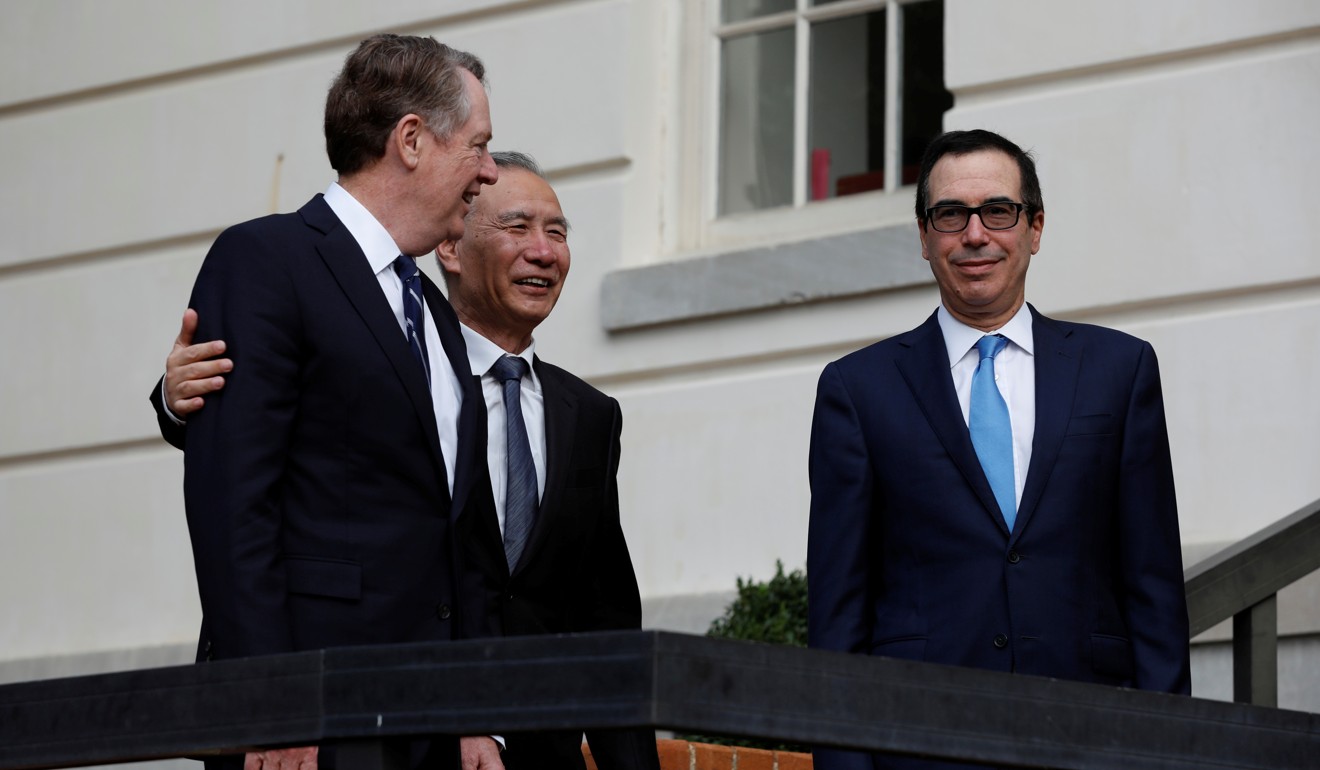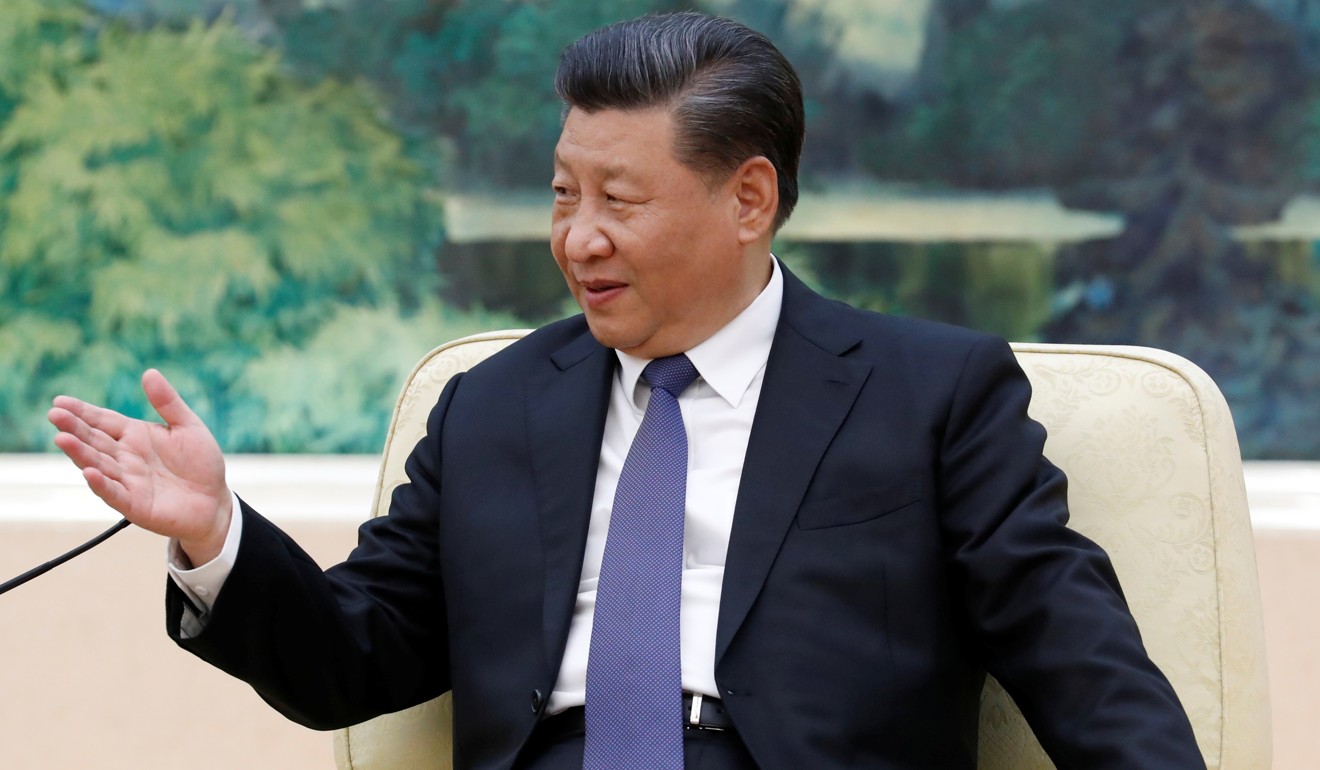
Chile’s ambassador to Beijing says world will look for US-China trade deal at Apec summit in Santiago
- Luis Schmidt says that when Chile hosts Apec leaders next month, China’s Xi Jinping and US’ Donald Trump will hold the key to improving global economy

The world will continue to suffer if the US-China tariff war escalates, so the two countries have every reason to reach a trade deal by the time their leaders meet at the Apec summit in Santiago next month, Chile’s ambassador to Beijing has said.
Ambassador Luis Schmidt Montes said free trade and multilateralism would be at the top of the agenda when the heads of 21 Pacific Rim countries met in Chile’s capital for the two-day Asia-Pacific Economic Cooperation (Apec) summit on November 16.
Xi Jinping is expected to make his third visit to Chile, his second as Chinese president, and his entourage will include representatives of 150 Chinese companies. Chile and China were expected to sign about 25 deals, including agriculture and infrastructure cooperation agreements, Schmidt said.
Economic prospects in the Asia-Pacific – which according to the International Monetary Fund (IMF) is the world’s fastest-growing major region – have been under a cloud because of the US-China trade war and a slowdown in major economies.

Last week, the Washington-based IMF cut its global economic growth forecast for 2019 from 3.2 per cent to 3 per cent, which would be the slowest rate since the financial crisis of 2008.
Protests in Hong Kong and in Chile, one of the most stable Asia-Pacific countries, have led to questions about the resilience of a region that contributes more than two-thirds of global economic growth.
“Probably I am more preocupante,” said Schmidt, using a Spanish term for worrying, “because the conflict between China and the US is not just about China and the US – today it’s about the global economy. All the economies are going down, and if [the trade war] continues, there could be a global recession that is not good for the world.”
Chile has also been recognised as one of the most stable and prosperous nations in Latin America, but its economy has been rattled this year by a fall in the price of copper – its main export – and the rising cost of the oil imports.
“China’s trade with the US accounts for less than 20 per cent of the total,” Schmidt said. “But [countries in ] the other 80 per cent have been slow because of the conflict, and that’s the reason we think finally at the Apec the two sides would solve the problem, because it’s not only good for your two countries but also for the world.”
US President Donald Trump has said he hopes to sign the first phase of a US-China trade deal with Xi on the sidelines of the Santiago summit. US Treasury Secretary Steven Mnuchin and Trade Representative Robert Lighthizer were expected to speak with Chinese Vice-Premier Liu He by phone on Friday.
During last year’s summit in Papua New Guinea, leaders failed for the first time to agree on a communique because of the deep divisions between the United States and China.

Schmidt said Chile had been cautiously advancing this year’s agenda, which included the free-trade agreement first raised in 2006 at the summit in Hanoi, Vietnam.
“Apec is about 21 economies and it’s complicated,” he said. “But all the 21 economies have to put in an effort. It would be more difficult, but we have to advance the [free trade] topic.”
Since their trade agreement took effect in 2005, ties between Chile and have strengthened significantly. China is now Chile’s biggest trading partner, and every day cargo containers of Chilean wines, fruit such as cherries, and livestock produce like pork arrive in China.
China has invested heavily in Chile’s mining sector, the world’s leading producer of copper, iodine, molybdenum, and rhenium for purposes as diverse as medicine, military armour and aircraft engines.
Trade between China and the whole of Latin America has surged from US$12 billion in 2000 to almost US$306 billion last year, and China has become a major investor in the region, which has caused concern for policymakers in Washington.
During his visit in Chile in July, US Secretary of State Mike Pompeo accused China of “sowing discord” in the region through “debt traps” in its flagship Belt and Road Initiative.
“When China does business in places like Latin America, it often injects corrosive capital into the economic bloodstream, giving life to corruption and eroding good governance,” Pompeo said.

Schmidt said Chile’s open and transparent business environment and its international tendering system had ensured that every capable company, including Chinese telecommunications equipment giant Huawei, had a fair chance of winning business there.
Fearful that Huawei’s equipment could be used to spy for the Chinese government, the US has led a campaign to convince its allies to exclude it from their fifth-generation telecoms networks. Huawei has repeatedly denied the US’ accusation.
“Because we are an open and independent country, it’s important to call a tender,” Schmidt said.